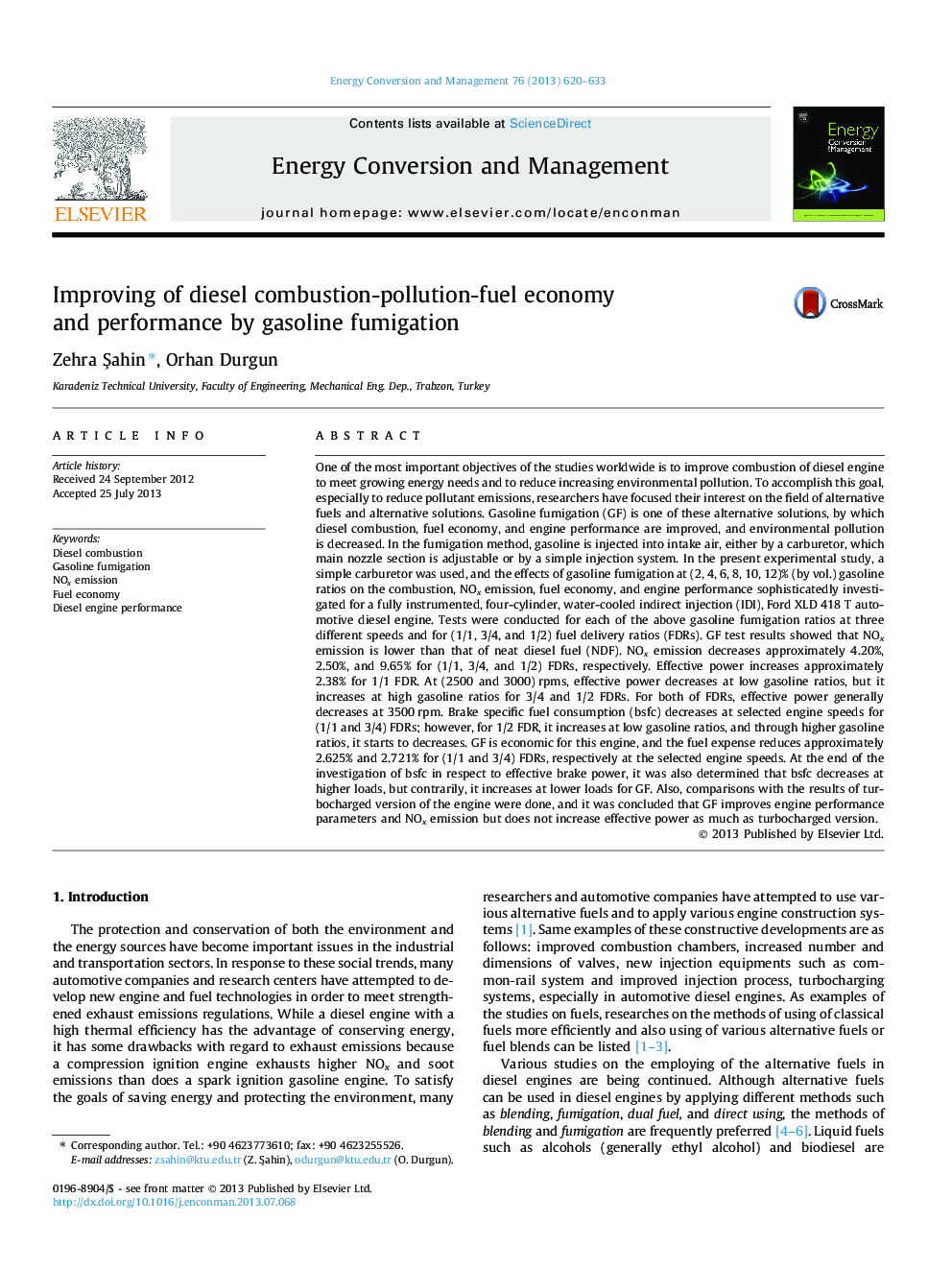| کد مقاله | کد نشریه | سال انتشار | مقاله انگلیسی | نسخه تمام متن |
|---|---|---|---|---|
| 760819 | 1462886 | 2013 | 14 صفحه PDF | دانلود رایگان |

• The effects of gasoline fumigation on the engine performance and NOx emission were investigated in Ford XLD 418 T automotive diesel engine.
• Gasoline at approximately (2, 4, 6, 8 10, and 12)% (by vol.) ratios was injected into intake air by a carburetor.
• GF enhances effective power and reduces brake specific fuel consumption, cost, and NOx emission.
One of the most important objectives of the studies worldwide is to improve combustion of diesel engine to meet growing energy needs and to reduce increasing environmental pollution. To accomplish this goal, especially to reduce pollutant emissions, researchers have focused their interest on the field of alternative fuels and alternative solutions. Gasoline fumigation (GF) is one of these alternative solutions, by which diesel combustion, fuel economy, and engine performance are improved, and environmental pollution is decreased. In the fumigation method, gasoline is injected into intake air, either by a carburetor, which main nozzle section is adjustable or by a simple injection system. In the present experimental study, a simple carburetor was used, and the effects of gasoline fumigation at (2, 4, 6, 8, 10, 12)% (by vol.) gasoline ratios on the combustion, NOx emission, fuel economy, and engine performance sophisticatedly investigated for a fully instrumented, four-cylinder, water-cooled indirect injection (IDI), Ford XLD 418 T automotive diesel engine. Tests were conducted for each of the above gasoline fumigation ratios at three different speeds and for (1/1, 3/4, and 1/2) fuel delivery ratios (FDRs). GF test results showed that NOx emission is lower than that of neat diesel fuel (NDF). NOx emission decreases approximately 4.20%, 2.50%, and 9.65% for (1/1, 3/4, and 1/2) FDRs, respectively. Effective power increases approximately 2.38% for 1/1 FDR. At (2500 and 3000) rpms, effective power decreases at low gasoline ratios, but it increases at high gasoline ratios for 3/4 and 1/2 FDRs. For both of FDRs, effective power generally decreases at 3500 rpm. Brake specific fuel consumption (bsfc) decreases at selected engine speeds for (1/1 and 3/4) FDRs; however, for 1/2 FDR, it increases at low gasoline ratios, and through higher gasoline ratios, it starts to decreases. GF is economic for this engine, and the fuel expense reduces approximately 2.625% and 2.721% for (1/1 and 3/4) FDRs, respectively at the selected engine speeds. At the end of the investigation of bsfc in respect to effective brake power, it was also determined that bsfc decreases at higher loads, but contrarily, it increases at lower loads for GF. Also, comparisons with the results of turbocharged version of the engine were done, and it was concluded that GF improves engine performance parameters and NOx emission but does not increase effective power as much as turbocharged version.
Journal: Energy Conversion and Management - Volume 76, December 2013, Pages 620–633